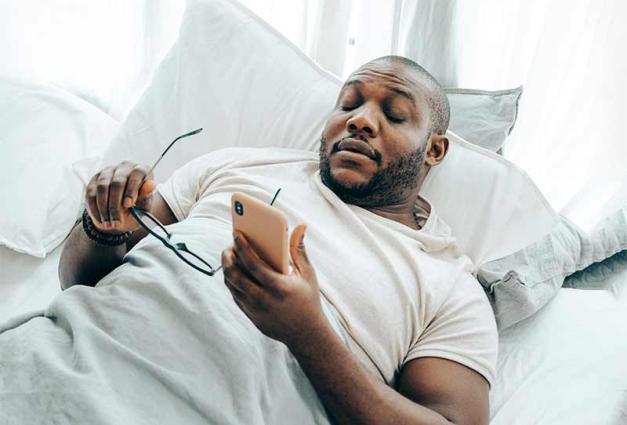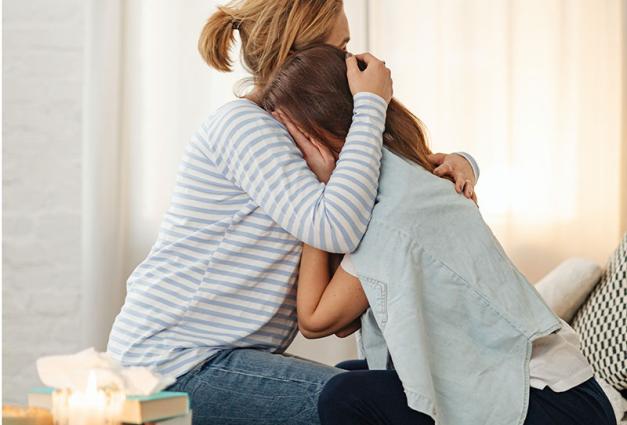The pandemic was terrible for women around the world. The COVID-19 health crisis magnified the unfair burdens that women were already shouldering. While the global pandemic distressed women's lives more deeply than men's in many ways, not all women's experiences were alike. Societies around the world support some women better than others. Unfair access to resources meant some women started the pandemic shouldering unfair responsibilities, and the stress and strain of a disaster without support multiplied their struggles. More pointedly, racism, classism, and sexism intersect in ways that uniquely personalized women's experiences of this global public health crisis.
We asked researchers around the world to send us their scientific findings about women's lives during the COVID-19 pandemic. The response was so robust we filled two special issues of a scientific journal. Two themes ran through the research about women's lives and COVID-19. First, the breadwinner/caregiver model most societies use to organize their homes, workplaces and communities uniquely disadvantaged women during this crisis. Second, although more men than women were dying from COVID-19 infections, COVID-19 disrupted women's mental and physical health and safety in astounding ways.
The Breadwinner/ Caregiver Model
The breadwinner/caregiver model assumes that men provide money and women provide care. The need for caretaking during a public health disaster like COVID-19 is monumental. Women's responsibilities ballooned along with increasing needs for healthcare, childcare, eldercare, and educational care while schools and businesses were interrupted. Women's household, childcare, and financial responsibilities increased more than men's did, and women of color experienced higher increases in household and financial responsibilities than white women and Black/Hispanic men. Moms were responsible for children's education at home and daughters did more chores and helped their siblings with school.
Reports from Germany, India, Nigeria, and South Africa found the same thing; during COVID-19 lockdowns women did more housework and childcare than men, especially in developing countries. Pandemic work-from-home experiences affected moms and dads differently. First, men were punished more than women when family interrupted their work from home. While problematic for men in the short term, the long-term result of this backlash was that women were required to continue shouldering the burden of family care because men could not afford the cost of defying the breadwinner/caregiver model. For example, unlike mothers', German fathers' parenting remained unaffected by changes to their work environments. Mothers who were 'essential workers' and worked outside the home had even higher parenting struggles than mothers who shifted to working from home.
Mental Health Consequences
The extra responsibilities women experienced during the COVID-19 pandemic damaged their mental health. In addition to women's increased worries and stress, women had higher rates of severe, moderate, and mild psychological distress than did men. So, it isn't surprising that women reported increasing their use of positive and negative coping strategies due to the pandemic more than men.
A Dual Pandemic
Women of color especially were forced to navigate overlapping pressures that hurt their mental health. In the U.S., people of color experienced 'dual pandemics'; a health crisis and an overdue racial reckoning. People of color navigated the COVID-19 pandemic while processing the media coverage of police brutality against Black and Hispanic/Latinx people and an uptick in violent racism against Asian people. Black women's increased responsibilities in community caretaking, especially in teaching resilience and protecting others, are valuable strengths but also explained their poorer mental health during the pandemic.
Neighborhood quality also affected women's lives during the pandemic. Mothers who lived in 'socially disordered neighborhoods' said the pandemic caused housing, food, and supply disruption, particularly for Latina mothers in the U.S. and those involved with the justice system. In India, gender and caste overlapped to make mental health disparities worse. Fear of COVID-19, poor mental health, and loneliness were higher for rural Indian women in already disadvantaged castes regardless of income.
Women's Physical Health and Safety: A Global Issue
Globally, women's physical health and safety suffered during the COVID-19 pandemic. Shelter-in-place mandates created unsafe environments, increasing the high rates of physical and sexual violence women face while decreasing access to domestic violence shelters. Shelter-in-place mandates reduced social support for pregnant women, especially when complications occurred. Pregnant women reported the misinformation and contradictory health recommendations caused stress during an already sensitive time. Additionally, in India, different district policies meant that some women could access necessary menstrual products more than others, and around the world, the neglect of women's health needs worsened existing 'period poverty'. When medical communities discriminate against women it sows distrust, which impacts women's health. For example, women in the U.S. were less likely to trust the COVID-19 vaccine.
Conclusion
During natural and human-made disasters women suffer the most, are most neglected when aid policies are created, and are most targeted to be taken advantage of during crisis. The COVID-19 pandemic was no exception, and women with less access to power, resources, and support experienced higher levels of hardship. But it doesn't have to be this way. Together scholars, community leaders, politicians, education stakeholders, corporations, and health care systems can draw on science to reduce existing inequalities. Women should not have to shoulder the burden of the next global pandemic.
For Further Reading
Dinella, L.M., Fulcher, M., & Weisgram, E. S. (Eds). (2023). Magnifying Inequity: Women's Lives during the COVID-19 Global Pandemic Installment 2: Women and Work, Children and Family Roles. Journal of Social Issues, 79(3), 841-1105. https://spssi.onlinelibrary.wiley.com/toc/15404560/2023/79/3
Fulcher, M., Dinella, L.M., & Schroeder, K.M. (2023). Magnifying Inequity: Women's Lives During the COVID-19 Global Pandemic, Installment 1: Women's Health and Safety. Journal of Social Issues, 79(2), 543-825. https://spssi.onlinelibrary.wiley.com/doi/pdf/10.1111/josi.12588
Lisa M. Dinella is a Professor of Psychology at Monmouth University in West Long Branch, NJ. She is the Principal Investigator of the Gender Development Laboratory where she investigates the connections between gender, race, academic achievement, career development and work/family balance.
Megan Fulcher is a Professor of Cognitive and Behavioral Sciences at W&L University in Lexington VA. She is a developmental psychologist whose research and teaching focuses on how children's visions of their future work and family lives. Current research focuses on how gendered toys impact children's occupational aspirations and anticipated family roles.




